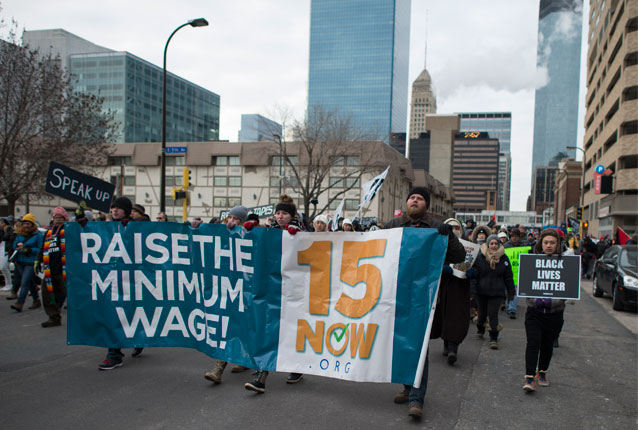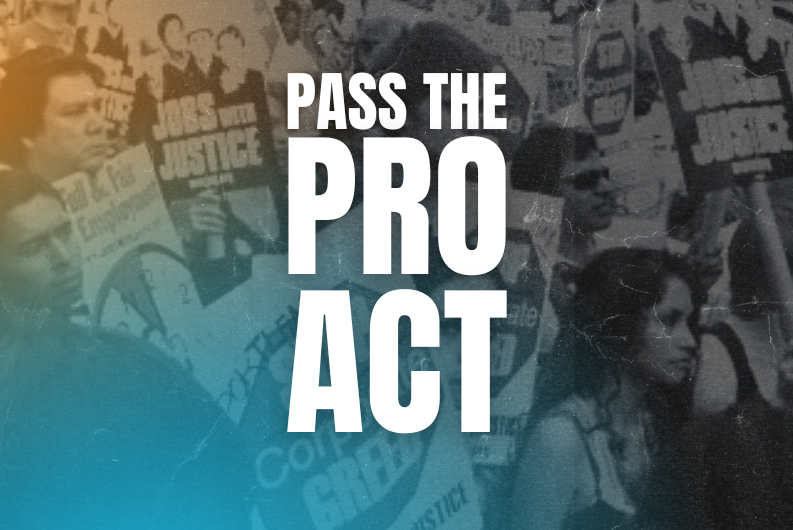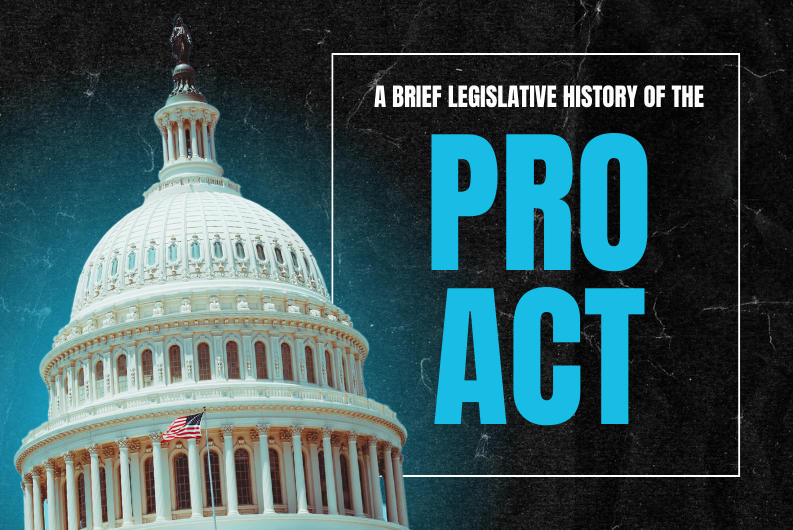House Republicans will lose their majority in a little more than three weeks and have decided to hold a hearing on whether to raise the minimum wage to $15 an hour. It seems like a strange time for them to turn their attention to the federal minimum wage. After all, they have spent their eight years in the majority casting votes for measures that would harm working people, such as their repeated failed attempts to repeal the Affordable Care Act. They are so vehemently against increasing the minimum wage that they unanimously voted down a modest boost to $10.10 an hour in 2013.
The GOP has maintained this blockade on minimum wage increases even as the real earnings of low-wage earners have gone down more than 10 percent since Republicans took the majority in 2011. By now, inflation has pushed down the constant-dollar value of the $7.25 an hour minimum to $6.45 an hour,even while corporate profits reach record highs.
Then why, after years of blocking minimum wage increases, are Republicans now holding a minimum wage hearing? Almost certainly, it’s not because after losing their majority they’ve seen the light. Indeed, the chairman of the House subcommittee holding the hearing is a strong opponent of a higher minimum wage. Rather, it’s one last-gasp attempt at making the case against an increase before handing the gavel over to Democrats.
But questions remain: Why do congressional Republicans oppose raising wages for working people under any circumstances? It’s not for economic reasons. According to study after study, increasing the minimum wage leads to increased earnings for low-wage working people without affecting the number of jobs available.
It’s not for political reasons: Raising the minimum wage is a very popular idea. Small business owners approve. Restaurant-goers agree, even if told it will increase menu prices. Since Republicans took over Congress, minimum wage referenda have repeatedly won decisively in states across the country, in red states, blue states, and purple states. They have won in California, in Oregon, in Washington (both DC and state), in Arkansas, in Missouri, in Arizona.
It’s not out of party loyalty or a rigid ideology: The Republican presidential candidates in 2012 and in 2016 both campaigned on increasing the minimum wage, although to be fair, Donald Trump has been all over the place on the issue.
Perhaps it is powerful conservative donors who have caused this resistance—the Koch brothers in particular are long-time opponents of raising the minimum wage.
Whatever their reasoning, Republicans’ anti-working-people stance has caught up with them. Voters rejected their agenda as the GOP both lost their majority in the House of Representatives and several governorships.
The remaining question, of course, is whether Democrats will learn the lesson: Stand shoulder to shoulder with working people or don’t get comfortable holding those gavels. A minimum wage increase should be one of the first orders of business in the new Congress, and House Democrats must use their leverage to ensure that an increase not only passes the House but is ultimately enacted into law.





